Why Is My Cat Licking the Carpet? 5 Vet-Reviewed Reasons
If you've arrived here seeking an explanation for your cat's carpet licking behavior, you're in the right spot. It's possible that your cat's actions are entirely typical. When there is an inherent health issue or behavioral concern involved, the act of mouthing (and probable ingestion) of non-food items like carpet is termed "pica." Pica serves as a broad term encompassing various underlying causes.
The 5 Reasons Why Your Cat Is Licking the Carpet
1. It Might Taste Good
Cats possess an excellent sense of smell, and spilled food or drink could be a magnet for them towards the carpet. Their licking behavior might be an attempt to consume residue left on the carpet.
While there's no malicious intent behind their actions, if you wish to discourage this behavior, consider diverting your cat's attention. Using a toy is the most effective method, but you can also apply a cat-friendly deterrent spray on the carpet. Ensure that the deterrent is safe for cats. Additionally, it might be a good idea to schedule a carpet cleaning to address any lingering smells or residues.
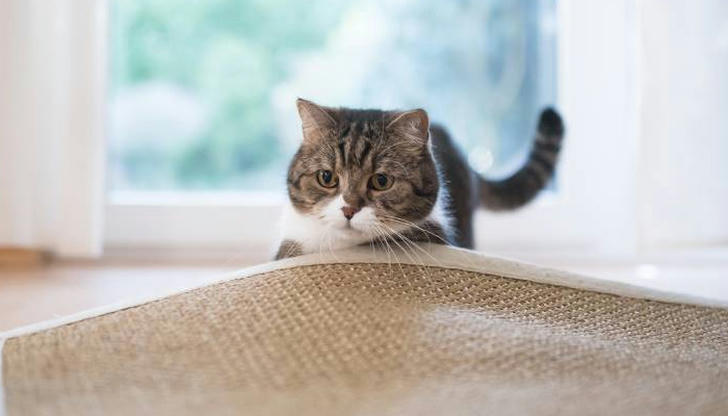
2. Comfort Behavior
Cats often engage in licking and sucking as a soothing gesture, so if you observe them licking the carpet, it could be a source of comfort for them. This behavior is likely associated with a sense of relaxation, often accompanied by the cat lying down and kneading.
If your cat is licking the carpet purely for comfort and seems content, there may be no immediate need for intervention. As long as your cat's essential needs are met and there's no harm in ingesting carpet material, allowing this behavior might be acceptable. However, if you prefer to discourage this activity, consider redirecting their behavior towards another object or surface.
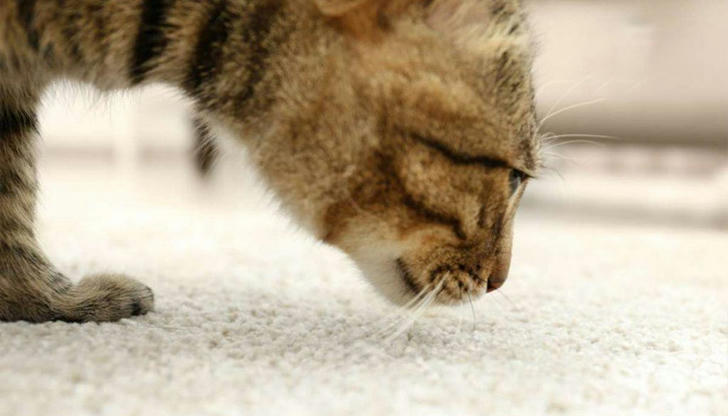
3. Boredom
Similar to humans, pets can experience boredom, and your cat may resort to licking the carpet as a means of seeking stimulation or expressing frustration. To keep your feline companion engaged and prevent such behavior, consider acquiring new toys, actively participating in floor play with your cat, or investing in additional structures like a cat tree for climbing and exploration. These measures can provide mental and physical stimulation, reducing the likelihood of carpet licking due to boredom or frustration.
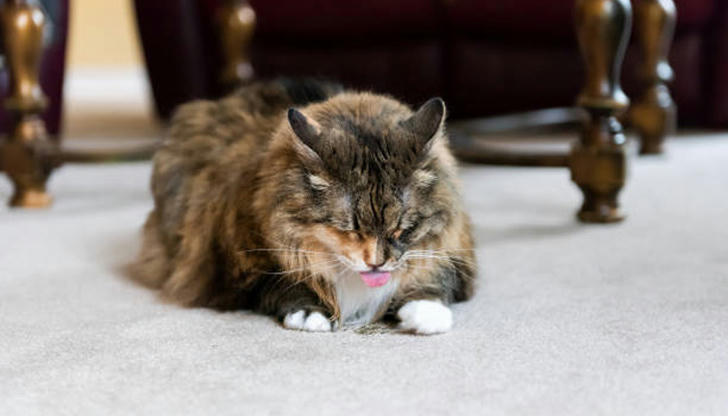
4. Behavioral Disorders
Cats experiencing anxiety often resort to self-licking and may develop pica as a coping mechanism. This behavior could also be indicative of obsessive-compulsive disorders. If your cat is feeling anxious, there might be additional signs of stress, including:
Reactivity
Aggression
Digestive issues such as diarrhea or constipation
Excessive grooming/hair loss
Excessive scratching
Inappetence
Increased sleeping
Isolation
Urinating outside the litter box
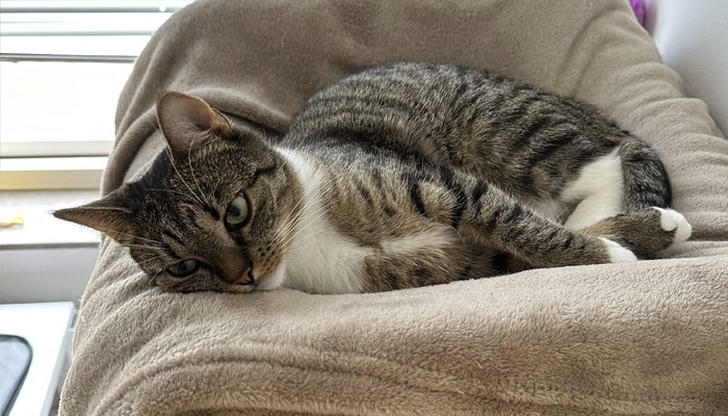
5. Disease
Pica can result from a poor diet and malnutrition. Cats may experience malnutrition even when consuming a seemingly good diet, particularly if gastrointestinal diseases like inflammatory conditions, parasites, or cancers hinder proper nutrient absorption. The underlying causes of such diseases can vary widely. If your cat is feeling unwell, licking may serve as a coping mechanism. Therefore, a comprehensive physical examination by a veterinarian, along with relevant veterinary tests, is crucial to ensuring your cat's overall health.
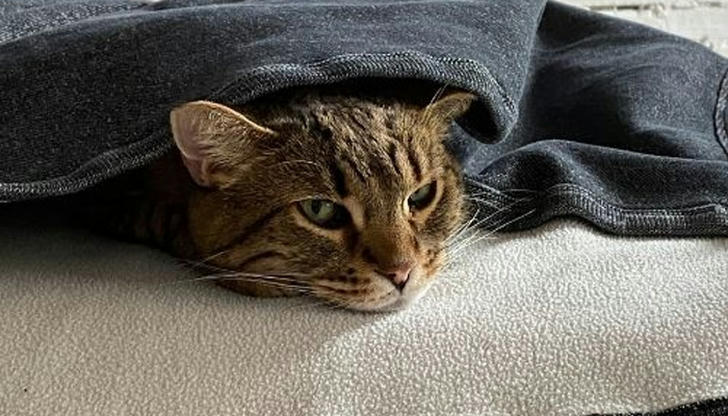
Determining why your cat licks the carpet lacks a simple answer. While some reasons may be harmless, others could indicate a need for assistance from both you and the veterinarian. If the behavior persists, a thorough check-up is advisable, especially if accompanied by additional signs of issues. It's essential to observe your cat for signs of an intestinal foreign body, and if any such indications arise, prompt veterinary attention is crucial.
